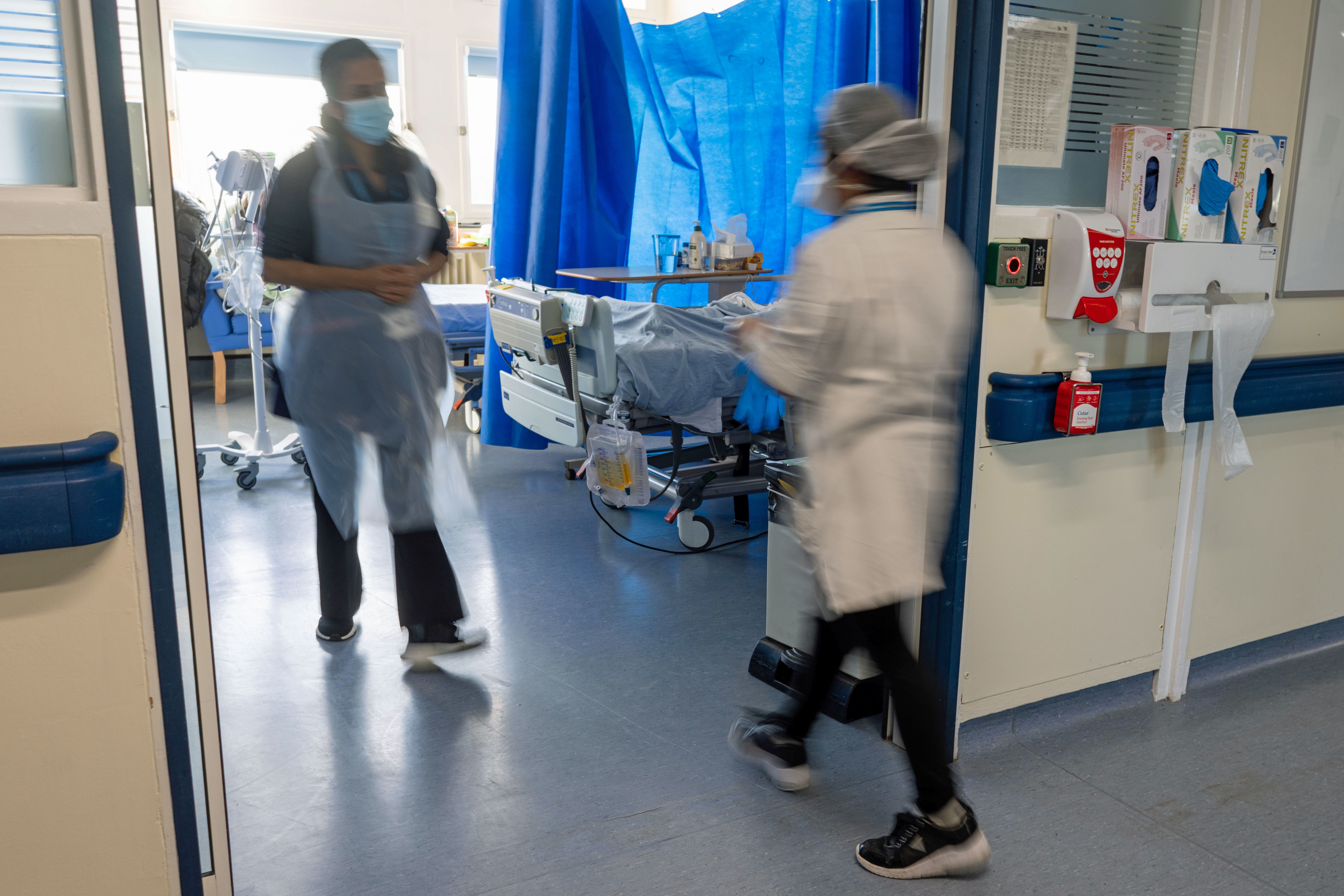NHS funding pledged by parties ‘well short’ of what is needed, says think tank
The Health Foundation said an incoming government will face ‘difficult choices’ on how to fund healthcare.

Your support helps us to tell the story
From reproductive rights to climate change to Big Tech, The Independent is on the ground when the story is developing. Whether it's investigating the financials of Elon Musk's pro-Trump PAC or producing our latest documentary, 'The A Word', which shines a light on the American women fighting for reproductive rights, we know how important it is to parse out the facts from the messaging.
At such a critical moment in US history, we need reporters on the ground. Your donation allows us to keep sending journalists to speak to both sides of the story.
The Independent is trusted by Americans across the entire political spectrum. And unlike many other quality news outlets, we choose not to lock Americans out of our reporting and analysis with paywalls. We believe quality journalism should be available to everyone, paid for by those who can afford it.
Your support makes all the difference.NHS funding pledged by leading political parties “falls well short” of what is needed to make improvements in the service, a leading think tank has said.
The Health Foundation called on politicians to be honest with the public about the scale of the crisis facing the NHS, and the amount of money needed to address issues.
It said that an incoming government will face “difficult choices” – to increase taxes to provide more funding, reduce spending in other departments and services, or see the NHS “do less”.
New analysis from the think tank concludes there is a potential £38 billion per year shortfall in the funding needed to improve the NHS by the end of the next parliament.
Work by the Health Foundation’s REAL Centre suggests that funding in England will need to rise by an average of 3.8% per year in real terms over the next 10 years to meet rising demand and to deliver improvements across the service.
Politicians need to be honest with the public about the scale of the challenge the NHS faces and the reality that an NHS fit for the future needs long-term sustainable investment
This includes a higher level of growth of 4.5% per year in the first five years.
Researchers projected what would happen if the health budget grows in line with the assumed growth in public spending factored into the Office for Budget Responsibility’s economic forecasts for the next parliament – real-terms funding increases of 0.8% per year.
This level of growth would see the total Department of Health and Social Care budget increase to £197 billion in 2029/30 – leaving the healthcare system in England around £38 billion a year short of what is needed to drive improvements, experts said.
A new Health Foundation report says the money is needed to bring “significant changes” to NHS services, and prioritises spending on GP care, mental health and community services.
The analysis includes a 10-year timescale to tackle the backlog of routine hospital appointment – which is slower than Labour and the Conservatives have pledged.
Anita Charlesworth, director of the Health Foundation’s REAL Centre, said: “The health service is in crisis and all the main political parties have said they want to fix it – yet the funding they have so far promised falls well short of the level needed to make improvements.
“Politicians need to be honest with the public about the scale of the challenge the NHS faces and the reality that an NHS fit for the future needs long-term sustainable investment.
“Honesty about this has so far been conspicuously lacking from the General Election debate, with both the main parties unwilling to spell out the difficult choices on public spending and taxation that will confront the next government.
“The scenario we have set out is not overly ambitious – it is broadly in line with the pledges set out by the main political parties and public expectations, and assumes the NHS can deliver challenging improvements in productivity.”
A Conservative Party spokesman said: “Thanks to our clear plan and bold action, we have virtually eliminated the longest NHS waits and overall waiting lists are falling at the fastest rate in over a decade outside the pandemic.
“But there is more to do which is why our £3.4 billion Productivity Plan will transform the NHS with new technology and unlock £35 billion of cumulative savings by the end of the decade.
“We will continue to increase NHS funding above inflation across the next Parliament to train and recruit 92,000 more nurses and 28,000 doctors through our Long Term Workforce Plan. We will deliver millions more scans, tests and checks as we cut waiting lists and deliver better care for patients.
“Only Rishi Sunak and the Conservatives will take the bold action, backed by a clear plan, to build a brighter and healthier future.
“Labour would take the country back to square one with at least £2,094 in higher council tax and other tax rises for every working family.”